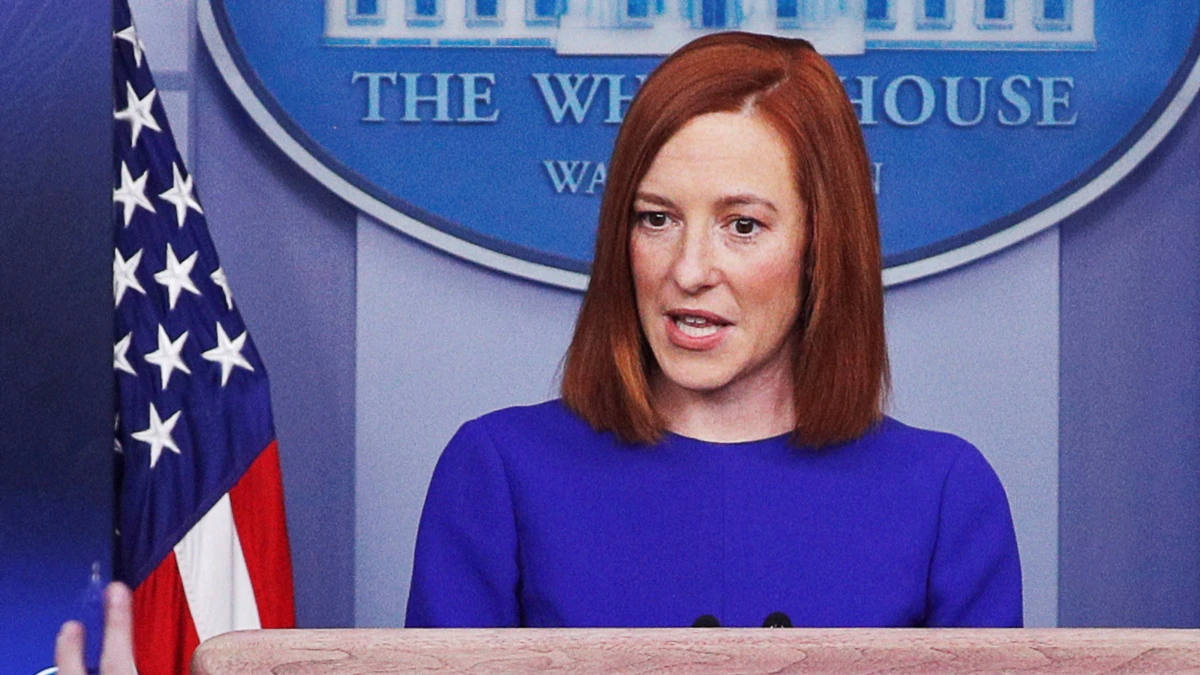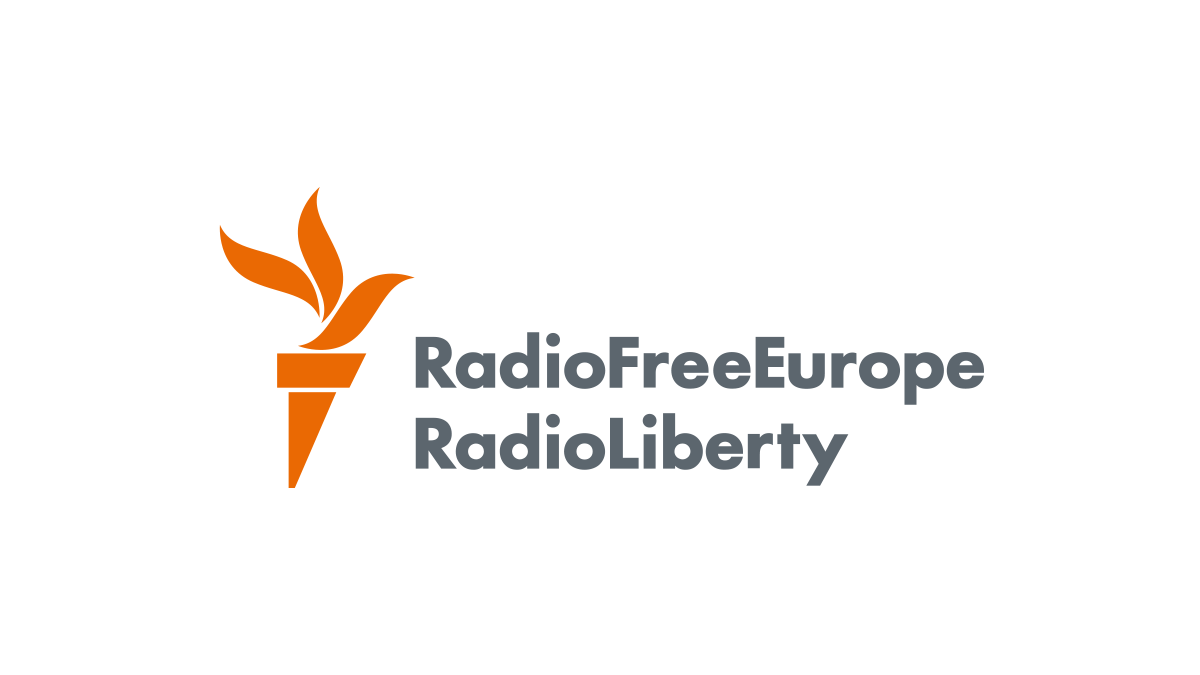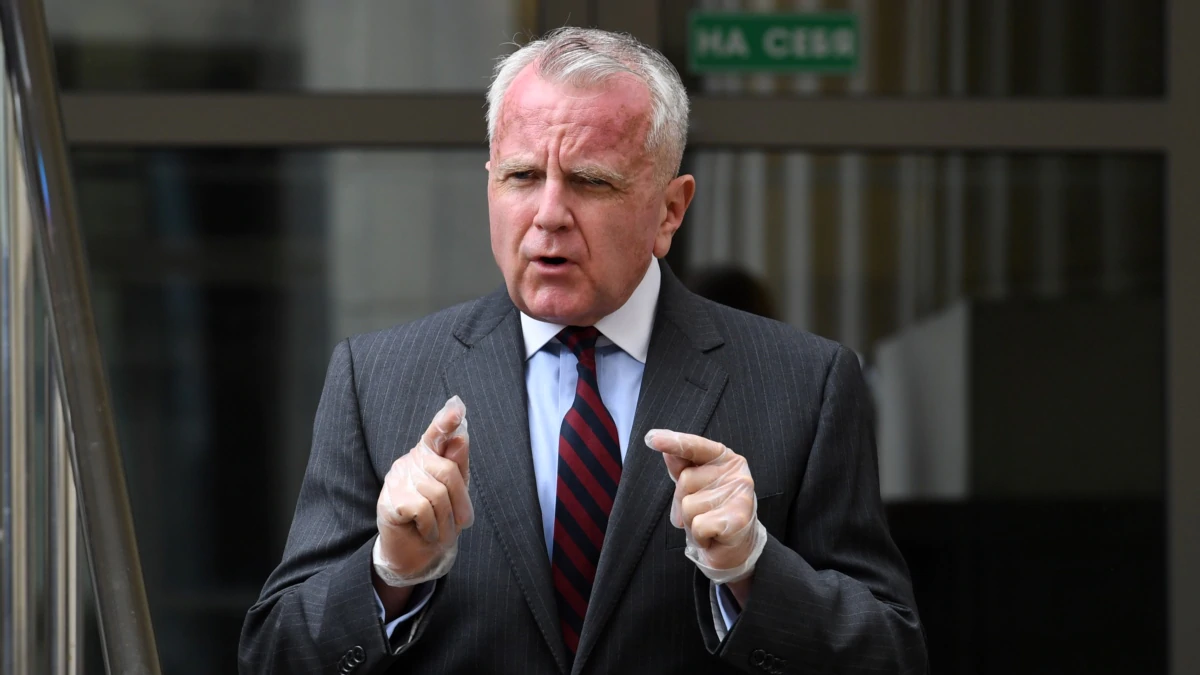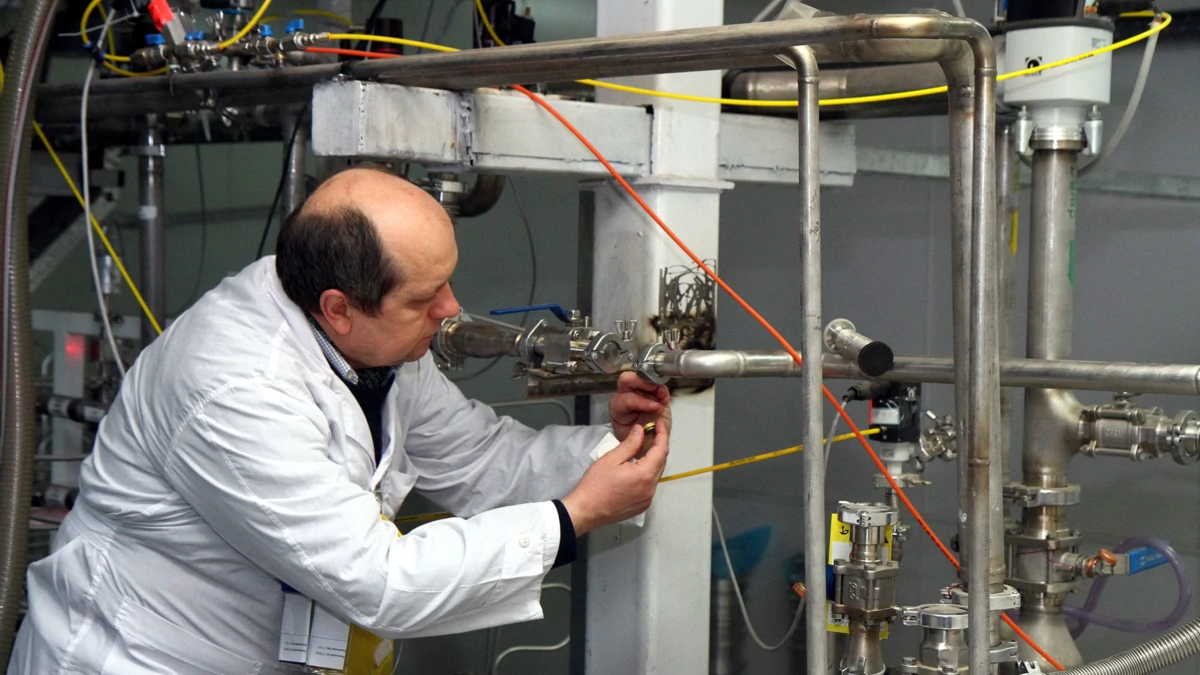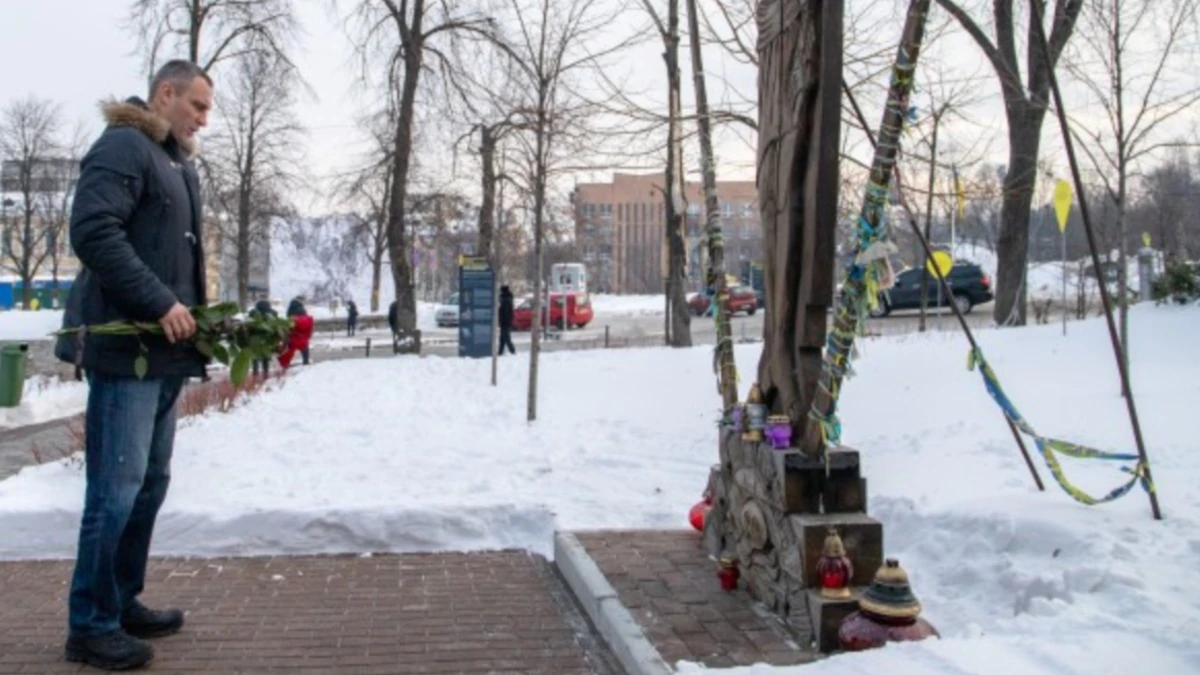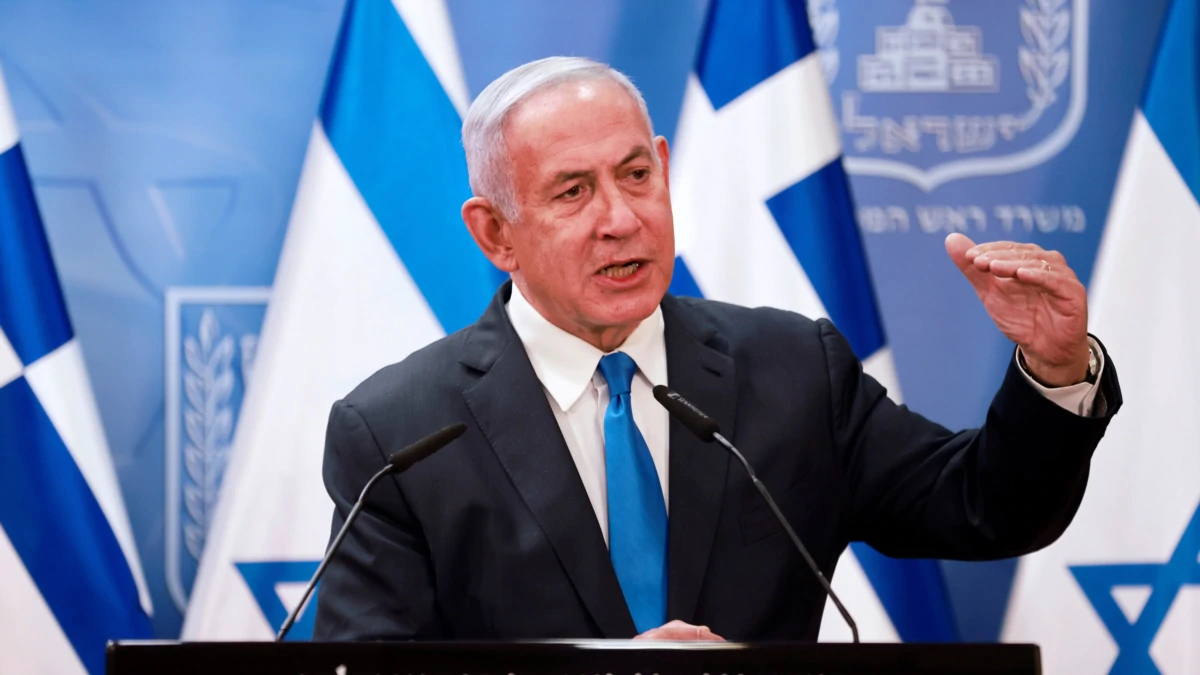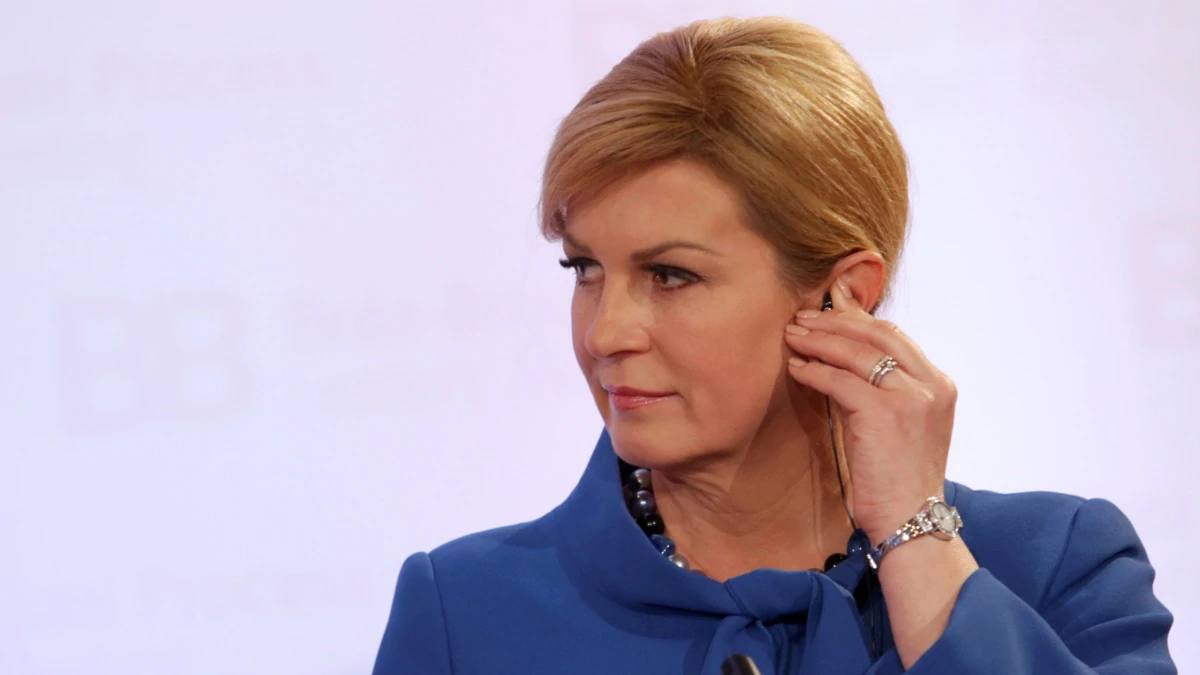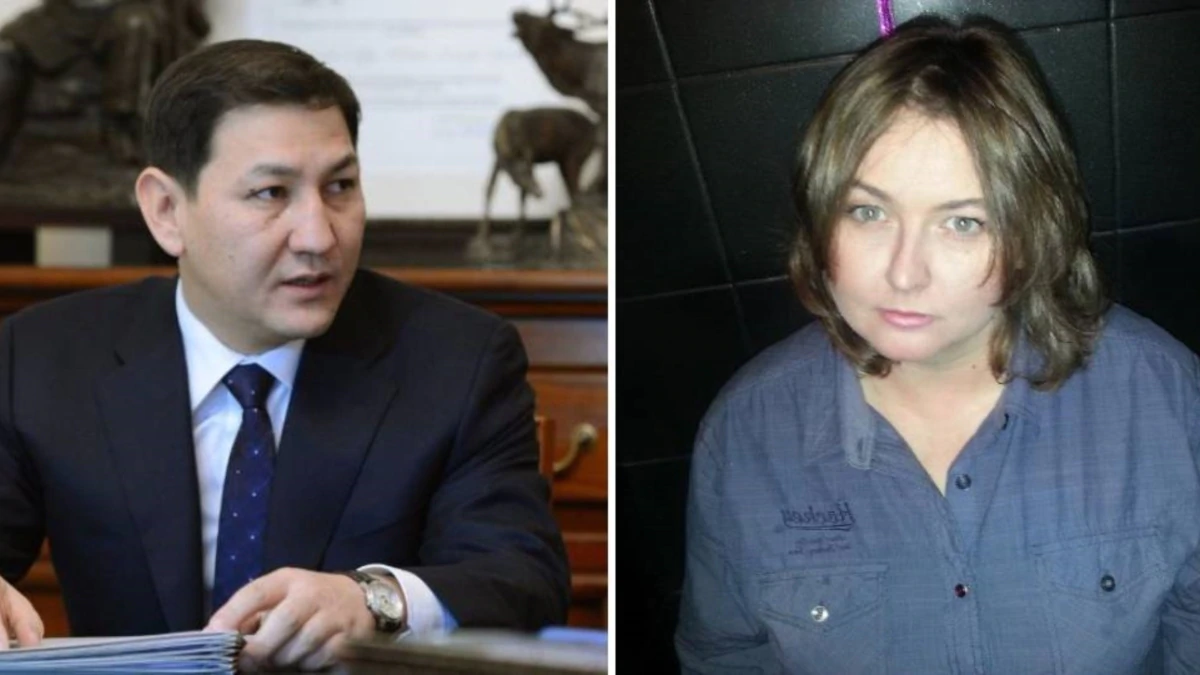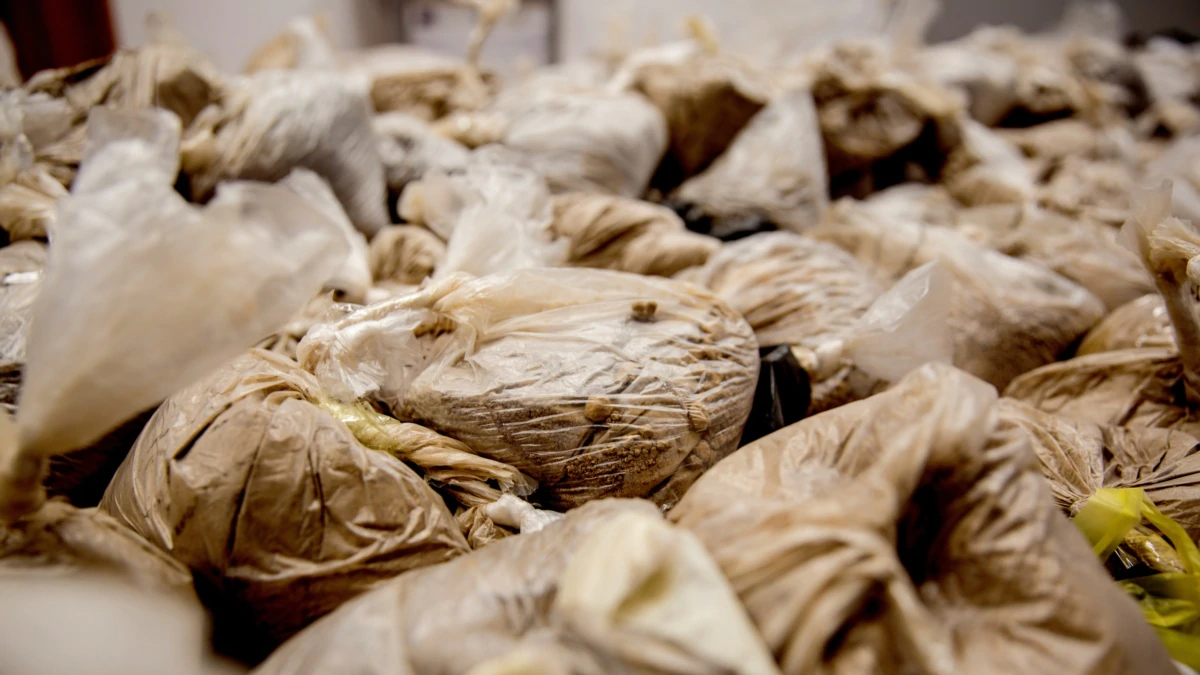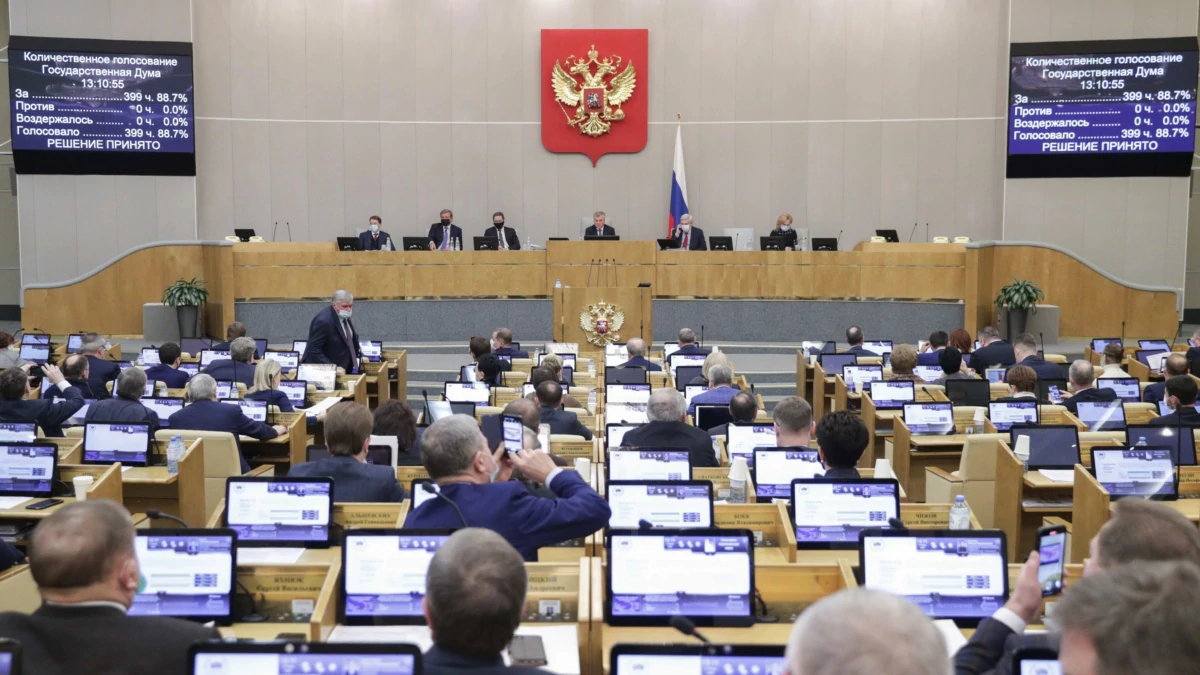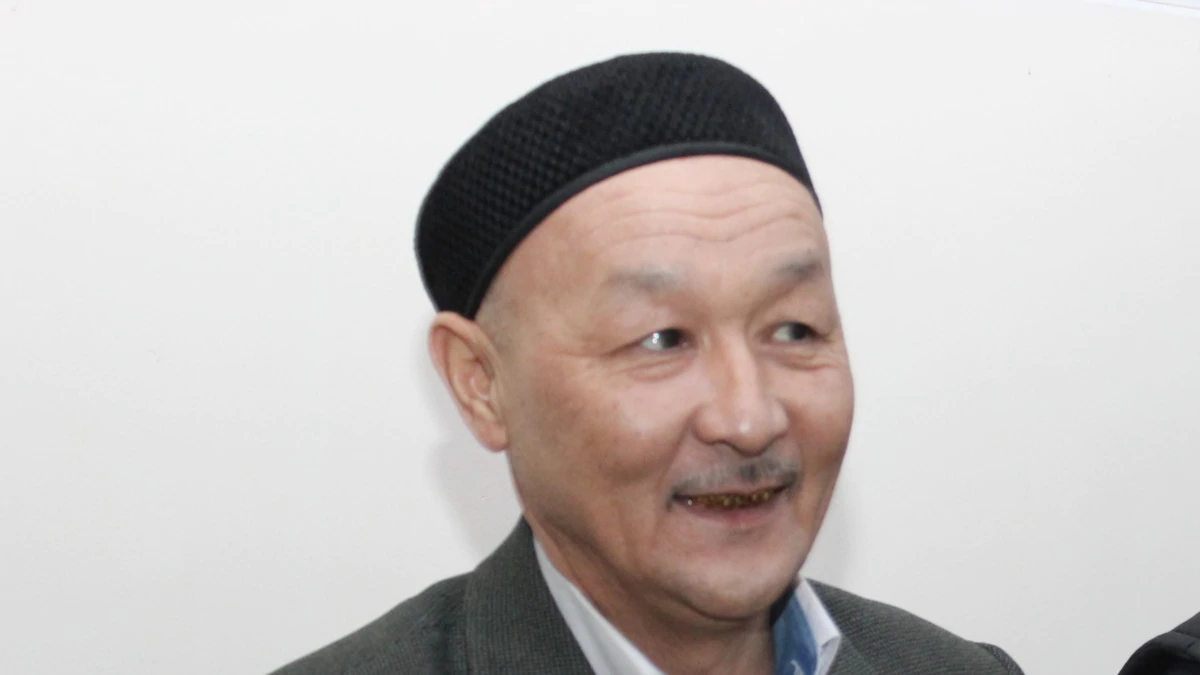The warning lights were blinking after October’s parliamentary elections.
The political party founded by Georgian billionaire Bidzina Ivanishvili cemented its grip on power, building on electoral gains from a year earlier despite an undercurrent of discontent dating back at least that long.
Opposition groups, however, cried foul and refused to even take their seats in the legislature, even though many international observers said the vote was more or less fair and free.
Now the leader of the country’s main opposition bloc has been ordered arrested, accused of violating bail on charges stemming from one of those protests. That arrest, in turn, has prompted the surprise resignation of the prime minister, who heads the government of Ivanishvili allies.
Confused?
Here are five things to know about the latest political crisis to consume the South Caucasus nation of nearly 4 million people.
So What’s Going On Exactly?
Prime Minister Giorgi Gakharia surprised the country on February 18 when he announced his resignation.
More unexpected was the rationale: to spare the country political “polarization” following an order by a Tbilisi city court to jail Nika Melia, the chairman of the United National Movement (ENM), the country’s main opposition party.
Gakharia appeared to have lost an internal debate within the ruling party over the signals that it would send to jail a leading opposition voice like Melia in a fragile post-Soviet democracy.
Melia has been accused of organizing violent protests that erupted outside parliament nearly two years ago, in the summer of 2019. That unrest was ignited by, among other things, a visiting Russian lawmaker’s decision to sit in the speaker’s chair of the Georgian Parliament during a meeting of politicians from predominantly Eastern Orthodox countries.
(More on Russia later.)
But underlying the protests were also opposition accusations that the electoral system was rigged in favor of Georgian Dream, which Ivanishvili founded in 2012.
And before that, there were other protests
In March 2020, after months of on-again, off-again negotiations in Tbilisi that included U.S. and EU representatives, Georgian Dream, the United National Movement, and other parties agreed to a deal to reform the system.
On October 31, saddled with the additional burden of the COVID-19 health crisis and signs of growing political fractiousness, the country held its first national parliamentary elections under the reformed system.
Again, Georgian Dream won a majority of the 150 seats.
International observers said the vote was “competitive and, overall, fundamental freedoms were respected” but cited pervasive allegations of pressure on voters.
Still, the United National Movement and the other, smaller parties cried foul. Since then, they have boycotted parliament, refusing to take part and ratcheting up tensions.
In announcing his resignation, Gakharia cited the threat of political polarization.
https://www.rferl.org/a/georgian-opposition-announces-new-election-protests-despite-ongoing-talks/30948925.html
“Of course, I believe and want to believe that this step will help reduce polarization in the political space of our country, because I am convinced that polarization and confrontation between us is the greatest risk for the future of our country, its economic development, and overcoming all types of crises,” he said.
A Georgian Dream lawmaker, Nikoloz Samkharadze, then claimed that “as far as I know,” Gakharia had “not only resigned but also left the Georgian Dream” party. https://agenda.ge/en/news/2021/442
After Gakharia’s announcement, the Interior Ministry said it was postponing Melia’s arrest.
A few hours later, Georgian Dream announced that it had chosen his replacement: Irakli Garibashvili, a former prime and defense minister who is considered a close confidant of Ivanishvili.
Why Should I Care?
In the West, Georgia has been seen as a potential role model for democracy — vibrant and messy — in a region where democracy is sometimes an afterthought or worse. (Armenia’s democracy is definitely vibrant and definitely messy. Azerbaijan is anything but democratic. Turkey’s is an open question. Russia’s is “managed.”)
That sentiment dates in part back to 2003, when a brash, U.S.-educated lawyer named Mikheil Saakashvili led a popular protest that ousted a long-serving former Soviet apparatchik, Eduard Shevardnadze.
Heavy on drama and sometimes criticized as lighter on substantive, far-reaching reforms, Saakashvili’s presidency hit a nadir in 2008 when Russia invaded, occupying two breakaway regions and humiliating the NATO-trained units of Georgia’s military in a five-day conflict.
Saakashvili and his United National Movement held on for another four years until 2012, when Ivanishvili’s newfound party won elections and Saakashvili conceded.
So far, Georgia hasn’t completely established itself as a full democracy. Politically charged criminal prosecutions of the exiled Saakashvili didn’t help burnish perceptions. But even more recently, Freedom House said Georgia had slipped in its democracy rankings in recent years, and now qualifies as a “transitional or hybrid regime.”
https://freedomhouse.org/country/georgia/nations-transit/2020
The instability has undermined Western proponents of fully embracing Georgia and encouraging it on the course toward the EU or even NATO footing that Saakashvili, and many Georgians, desire. Some Western planners still view Georgia as a candidate to be bumped out of Russia’s orbit.
“Nowhere else in the region do so many aspire to the Western-led, rules-based, liberal world order that [Russian President Vladimir] Putin abhors,” Salome Samadashvili, an opposition lawmaker, wrote in a 2019 opinion article.
https://www.washingtonpost.com/opinions/2019/07/12/georgians-are-taking-stand-against-vladimir-putin-where-is-west/
Then there are the economic considerations: Georgia sits astride several major trading routes and is crisscrossed with railways and an important pipeline that brings oil from Azerbaijan to Tbilisi then to world markets, via the Turkish port of Ceyhan.
The political instability has tamped down outsiders’ appetite for investing in the country.
So What About This Billionaire Guy?
With a net worth now estimated at nearly $5 billion by Forbes, Ivanishvili made his fortune in the 1990s, in Russia, with investments in metals, real estate, and banking.
https://www.forbes.com/profile/bidzina-ivanishvili/?sh=4e3a5ef45989
A Russian citizen, Ivanishvili returned to Tbilisi around the time of the 2003 Rose Revolution, built a palatial mountain-side compound outside the capital, and then, in 2011, hatched a plan to launch his own political party.
https://gdb.rferl.org/8C86536C-850B-497E-BD02-45C71B8D9258.jpg
https://gdb.rferl.org/8C86536C-850B-497E-BD02-45C71B8D9258.jpg
After his Georgian Dream’s electoral victory in 2012, Ivanishvili served as prime minister for just over a year before returning to the private sector, though most believe he still is the godfather of Georgian politics, pulling the strings from offstage.
In 2018, he returned as chairman of the party, and the following year the party helped spearhead changes to how lawmakers are elected to parliament, a move largely backed by opposition parties.
Last month, Ivanishvili again announced his retirement from politics, though many Georgians say they doubt his real intentions.
Ivanishvili, who gives few interviews, is known as an avid art collector: with works by Picasso and Monet among his possessions.
And he’s built a private zoo.
His most quixotic endeavor? Uprooting hundreds of massive, century-old trees and moving them, over land and over sea, to a new ecological park owned by his family.
VIDEO:
“It’s my hobby and I really love big trees. Giant trees are my entertainment,” he said in one interview.
https://oc-media.org/features/ivanishvilis-tree-collecting-hobby/
OK. So Russia’s To Blame, Right?
Actually, no. At least not directly.
Many Georgians resent Russia. Or more precisely, they appear to resent Putin’s Kremlin.
https://gdb.rferl.org/C48E8938-BC28-47A0-AC31-1FD6C56807A7_w1023_r1_s.jpg
A 2018 survey conducted by the Center for Insights in Survey Research found that 85 percent of Georgians consider Russia to be a “political threat.”
https://www.iri.org/sites/default/files/2018-5-29_georgia_poll_presentation.pdf
That attitude stems mostly from the 2008 war, which ended with Russian troops occupying Abkhazia and South Ossetia — two regions that already had considerable autonomy dating back to the early 1990s.
Russia maintains a substantial military presence in both regions; in South Ossetia, the administrative line dividing the region has been shifted several times by Russian forces, resulting in a loss of territory for Georgia proper.
https://www.rferl.org/a/daily-vertical-georgia-ossetia-border-moved-russian-troops/28609829.html
In all, one-fifth of Georgia’s territory is now under the control of Russia and the separatist groups it supports.
Still, Georgia has long been reliant on Russia as its largest export market for things like agriculture products and its famed wines and mineral waters. Moscow has squeezed Tbilisi in the past to block some exports, citing spurious claims of poor quality.
A ban on wines and mineral waters imposed in 2006, under Saakashvili, lasted until 2013, after Ivanishvili was in power. Getting Russia to lift that ban was a key goal for Georgian Dream.
The bigger question for some Georgians surrounds Ivanishvili’s loyalties. Opposition groups regularly insinuate that the Russian roots of his business empire make him beholden to interests there: industrial or intelligence. Gakharia himself was a businessman in Moscow before being pulled into Georgian politics by Ivanishvili.
For his part, Ivanishvili has repeatedly denied any suggestion that he was ever compromised or took orders from Russian interests.
What Happens Next?
Gakharia’s resignation, the suspension of Melia’s arrest order, opposition parties calling for snap elections — all point to new turmoil and uncertainty in Georgian politics.
So it’s anyone’s guess.
The first step might be parliamentary approval for Georgian Dream’s choice of a successor as prime minister.
The 39-year-old Garibashvili was defense minister in Gakharia’s cabinet before the latter’s abrupt exit on February 18.
Paris-educated, Garibashvili’s previous, two-year stint as prime minister could provide some reassurance to Georgians and the international community.
But the EU’s envoy to Georgia, Carl Hartzell, has warned that the circumstances of Melia’s prosecution are a “dangerous trajectory for Georgia and for Georgian democracy.”
Washington quickly tried to soothe the diplomatic waters but also warned that there did not appear to be a quick fix to decades of Georgian “problems.”
“The current dangerous situation following the Melia ruling stems from decades-long problems with the electoral system and the judicial system,” the U.S. Embassy in Tbilisi said in a statement. “The way to address the important issues at stake is through peaceful negotiation. We urge all involved to remain calm and avoid violence.”
This post was originally published on Radio Free.
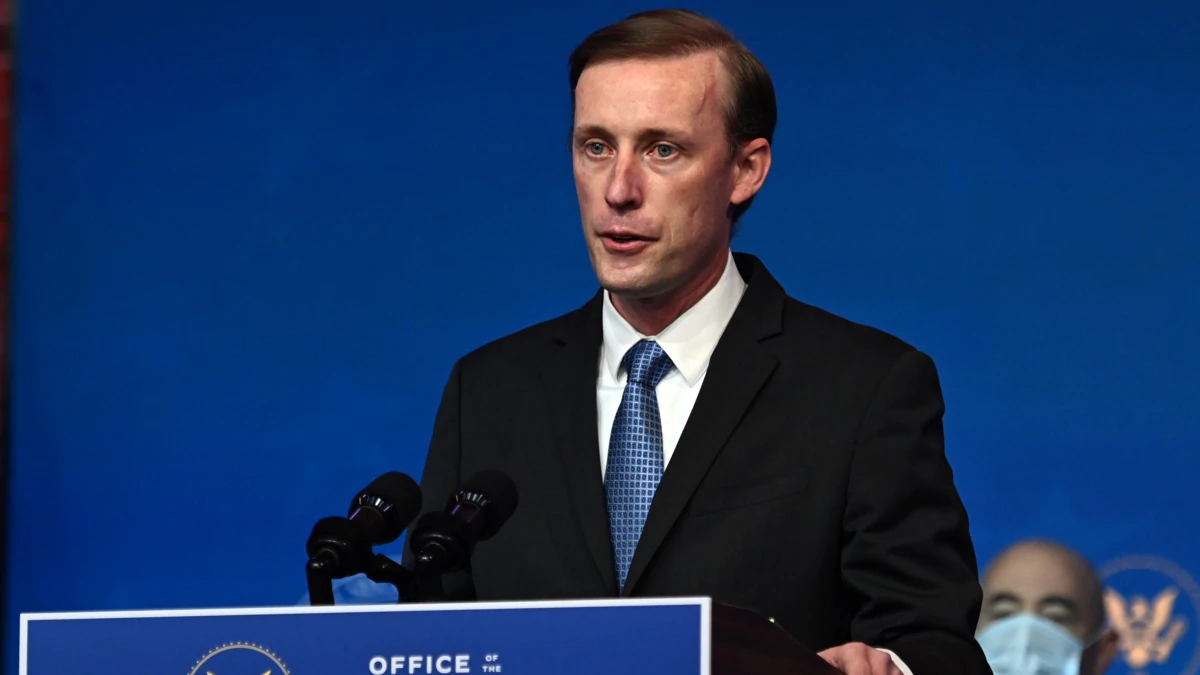


!["The reaction from society [toward me] was mostly positive," says Sabinella Ayazbaeva. "For example, I never heard anyone call me a terrorist. But some of my old friends are afraid of being in touch with me again."](https://gdb.rferl.org/1AB092B7-1CE0-4497-B238-8BFCD4B86CAF_w250_r0_s.jpg)
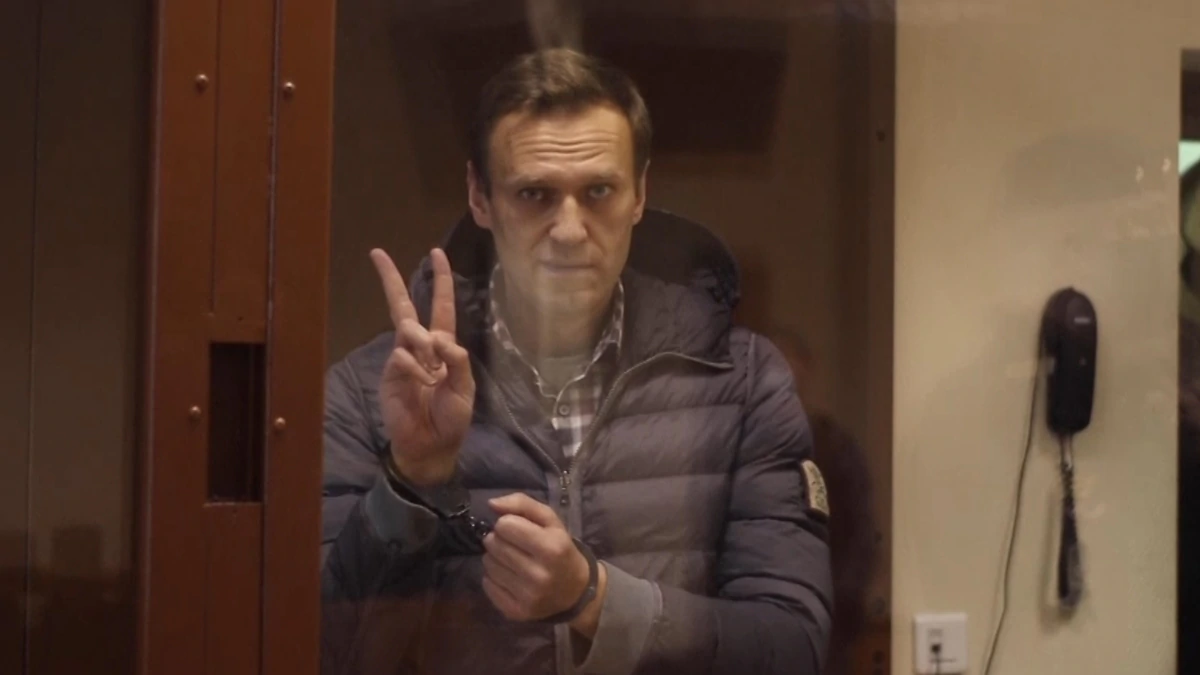

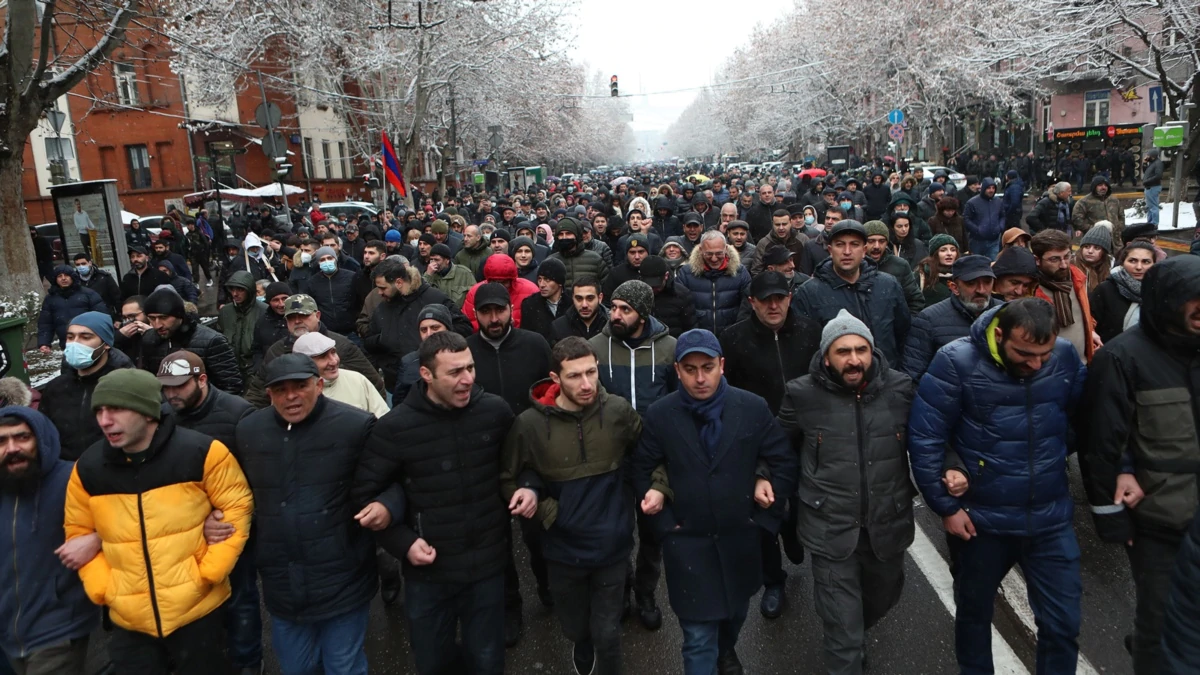
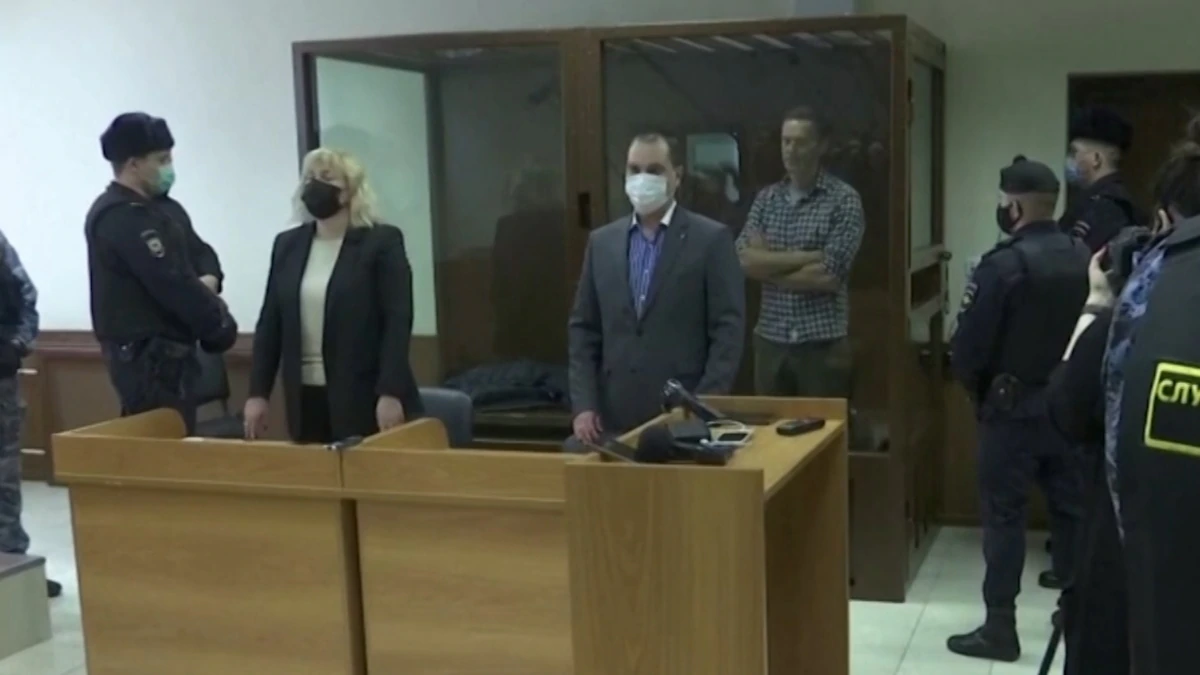


!["I can say without any doubt that since I was appointed health minister on May 5...the government has been providing completely free medical treatment for [COVID-19] patients," Health Minister Jamoliddin Abdullozoda told reporters on February 12. (file photo)](https://gdb.rferl.org/fa5796ab-8f64-4917-82ba-00f238c91fb6_w250_r0_s.jpg)






